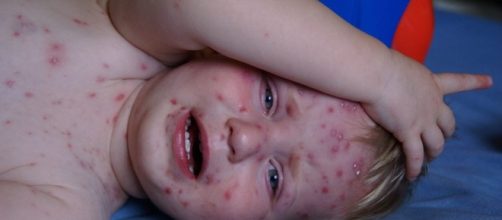Chickenpox was once a cause for dread among many schoolchildren everywhere. Many kids remember itching, oatmeal baths, and in the case of many 90's kids, pox parties where they were deliberately exposed to the disease to "get it out of the way." However, in the last decade, scientists have detected a significant drop in the disease. Thanks to a change in thechickenpoxvaccine, the disease may soon be fried.
The chickenpox study and methodology
According to the report released by theCenter for Disease Control, cases of the disease have declined drastically since 2006 when doctors changed their recommendation from getting one dose of the varicella-zoster virus vaccineto two.
In the 10 years since scientists have found that the rate ofchickenpox cases have declined by nearly 85%.The biggest drop occurred in kids between 5 and 14 as they are usually the ones who get the second dose. The single initial dose produced similar results.
However, theCDCadmits that its data is not entirely complete, some states, for whatever reason do not report data to the CDC, Some parents may decline to report cases of chickenpox to their doctor as it's usually not that big deal. Some milder cases may be mistaken for different illnesses if there are very few of the disease's signature itchy skin lesions present. That being said, scientists are encouraged and hope thatchickenpoxwill be removed from our shores
Chickenpox is not entirely harmless
While the disease typically isn't fatal, particularly severe cases ofchickenpoxcan be deadly, particularly in people with weakened immune systems.
The CDC reports that the disease causes around 100 deaths a year.While it may be mostly harmless during childhood, the virus can remain in the body indefinitely. While this isn't a problem most of the time, later in life, it can causeshingles(an extremely painful rash with blisters), if it reactivates.
However, if parents get kids vaccinated, the disease, if they get it all (and it's a big if) is typically a milder case. In contrast, unvaccinated kids are nearly 80% more likely to get more severe case, Parents should keep these facts, and the hope that future generations will not have the disease in mind before listening to people who deny the safety and effectiveness ofvaccines, particularly from so-called doctors who deny the treatment's effectiveness while not actually seeing patients, choosing instead to make their money selling expensive items they market as "natural cures" in online stores.
Here's a video of what to look for if you think your child has chickenpox.

